Roughly a week after Iran attacked Israel with more than 300 drones and missiles, 99% of which missed or intercepted, Israel has retaliated, striking the Islamic Republic with just a handful or drones and missiles. Unlike Iranian’s massive attack on the Jewish state that failed to inflict meaningful damage, Israeli’s “limited strike” saw multiple explosions in several cities of Iran.
It was the first attacks by both countries on each other. Interestingly, while Iran was trying to cover-up the attack with hilarious conflicting stories to avoid having to retaliate again, Israel has refused to take responsibility for strategic reasons. It was U.S. officials who confirmed that Israel hit Iran with missiles in the early hours of Friday (April 19), without which everything might have been swept under the carpet.
At first, Tehran claimed it was factory explosions. Then it admitted there was an attempted strike, but involved only small drones. The government-controlled news media, trying very hard to hide the attack, even said the explosions were due to air defence being activated. However, Iran imposed restrictions on commercial flights in the hours immediately after the “denial” of a strike.
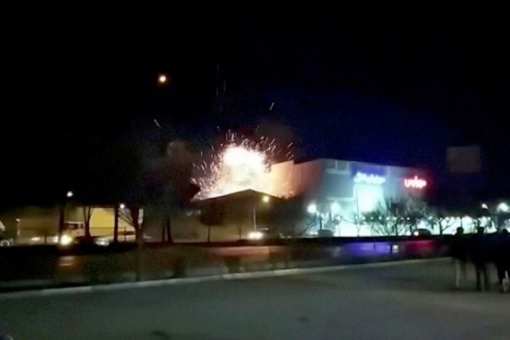
Iran’s National Centre of Cyberspace said there was “no air attack from outside borders”. Yet, the same agency said Israel had “only made a failed and humiliating attempt to fly quadcopters, which have been shot down”. Exactly how Tehran could proudly announce that there was no breach of airspace, but at the same time admits that Israeli drones had entered into Iran, is beyond comprehension.
The retaliation from Israel saw Isfahan – the third largest city in Iran – attacked at a time when Tehran thought it had taught the Jews a lesson they won’t forget. Not only the Iranian regime warned its enemy that the 300 drones and missiles strike was merely a “limited attack”, President Ebrahim Raisi bragged that the “tiniest attack” by Israel in retaliation would bring a “massive and harsh” response.
Now, thanks to the Iranian president’s big mouth, the country must make good on its promise to retaliate after Israel responded with its tiniest attack. But the Mullahs don’t have the balls to retaliate. That’s why they scrambled to play down the attack. Isfahan is home to Iranian airbase that is home to a fleet of American-made F-14 Tomcats – purchased before the 1979 Islamic Revolution.
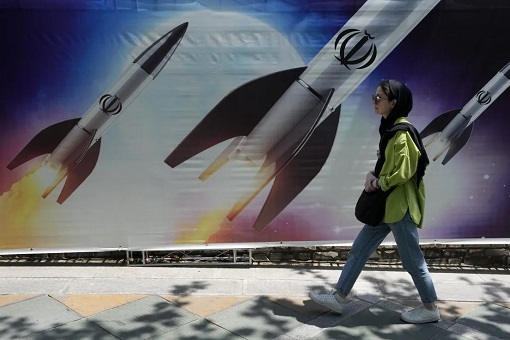
Isfahan also hosts a major missile production complex and four nuclear facilities, including its underground Natanz uranium enrichment site. This is the area where most of the country’s Shahab medium-range missiles – used to hit Israel in Iranian’s assault on Israel on April 13 – are assembled. Besides Isfahan, the Israeli appears to have also attacked Tabriz, a region roughly 500 miles north of Isfahan, where explosions were also heard.
Israel understood that as long as Iran continues to deny the attack and divert attention from it, its gullible Iranian domestic audience could also be convinced that nothing had happened. As much as the Iranian government likes to hide the humiliation, the world knew that it had been attacked by Israel. The message is clear – Israel could hit Iran’s nuclear facility if it wanted to, despite the presence of Russian S-300 surface-to-air missile system.
There are strategic reasons why Israel refuses to take responsibility over the attacks deep inside Iran, or didn’t hit Iranian’s nuclear facility (or oil production for that matter) when it could. As a start, it doesn’t want to escalate the tension whilst providing an excuse for Iran not to fight back. The overnight attack was also to demonstrate the Jewish state’s military technology and prowess.
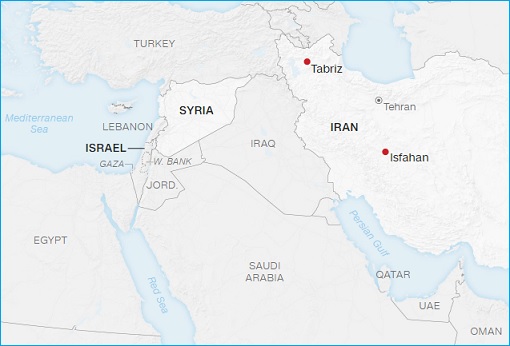
Not only the strike made clear to Iran that Israel has the ability to successfully attack and damage Iran, but can do so with far fewer weapons due to its superior technical capabilities. This sends a powerful message to both friends and foes in the Middle East that those who dare to attack Israel will pay a heavy price. And Iran is a classic example.
Israel informed the U.S. of its plan “at the last minute” – suggesting that Tel Aviv does not necessarily need Washington’s green light when dealing with Tehran. Crucially, it sends a signal to Iran that a defiant Israel is more dangerous and unpredictable. Israel could ignore Joe Biden’s advice not to strike Iran, the same way the Iranians ignored the U.S. president’s order – “don’t” attack Israel.
It was a clever strategy to have a second bite at the cherry. By not admitting to the attack on Iran now, Israel can certainly claim its legitimacy to attack Iran at a later stage as part of retaliation for Tehran’s 300 drones and missiles attack. At the same time, it could extract concessions from the U.S. for not striking back at Iran. The US is now considering a weapons deal with Israel worth more than US$1 billion.
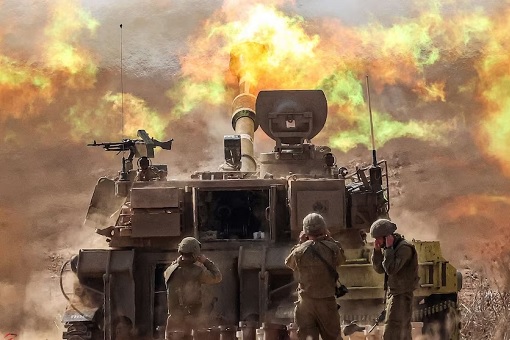
Unlike Iranian leaders who prematurely and recklessly claimed credits and spewed empty rhetoric about its military might, Israel prefers to keep a low profile – not because it was afraid of Iran, but because it has a bigger fish to fry. In exchange not to retaliate against Iran (which Israel quietly retaliated anyway), Tel Aviv wanted Washington’s approval to launch Rafah assault – Hamas’ last military stronghold.
Only after taking care of terrorist group Hamas will Israel focus all its resources to seek full revenge on Iran later. Israeli Prime Minister Benjamin Netanyahu said Israel will make its “own decisions” in defiance of U.S. president Joe Biden’s statement that the Pentagon will not take part in any Israeli retaliatory action against the Iranian regime.
Israel will respond to Iran’s aerial assault “at the time and place of our choosing,” – said IDF Spokesman Rear Adm. Daniel Hagari. Hence, it was not a coincidence that the apparent attack came on Iranian Supreme Leader Ayatollah Ali Khamenei’s 85th birthday. It was to humiliate the Iran’s most influential leader, who also serves as the Commander-in-Chief, but had to scramble to hide in the bunker.
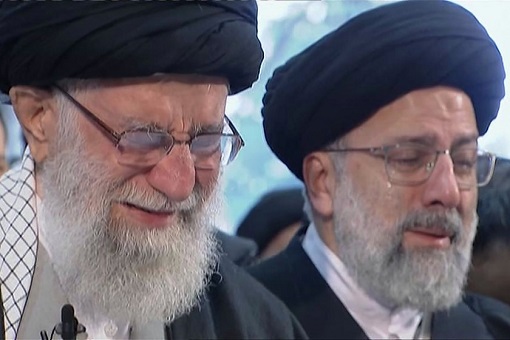
Actually, Biden did not say the U.S. and its allies will not defend Israel should Iran attack their ally again. He just didn’t want to participate in attacking Iran for fear of spiking oil prices and triggering inflation during the election year. More importantly, by refusing to acknowledge its role in attacking Iran, Arab friends like Saudi Arabia, UAE, Egypt and Jordan would continue defending Israel in the event Iran attacks the Jewish state again.
Other Articles That May Interest You …
- How Iran’s 300 Drones & Missiles Failed – But Brags Victory Anyway Despite 99% Of Them Intercepted
- U.S. Rushed Warships To Defend Israel – $100 Oil Price And World War 3 If Iran Attacks Israel Directly
- Talk, Talk & More Talk – Toothless Arab-OIC Slams Israel, But Saudi Led 9 Allies Against Economic Retaliations
- Human Shields – How Hamas Cleverly Wins Propaganda War, But Was Stunned By “Fire Power” Unleashed By Israel
- Told You So!! – Congrats To Anwar For Radicalizing School Kids As Potential Hamas Terrorists Playing With Guns
- An Eye For An Eye!!! – No One Can Stop Israel From Reducing Gaza To Rubble And Erase Hamas Terrorists
- Israel-UAE Full Diplomatic Deal – The First Step Towards Recognition Of Israel By More Gulf Arab States
- Iran’s Trouble Has Just Begun – Why It Finally Admits “Unintentionally” Shot Down Civilian Ukrainian Plane
- What The Arabs Don’t Want You To Know – How Israel Secretly Saved Egypt From ISIS
- The Lifestyle Of “Rich Kids Of Tehran” Fuels The Fire Of Protest In Iran (Photos)
- Malaysia Declares War On “Impenetrable” Israel … To Be Slaughtered Like A Pig?

|
|
April 19th, 2024 by financetwitter
|


|

|

|

|

|

|




























Comments
Add your comment now.
Leave a Reply